THEATRE
A fat suit, a David Kramer musical and the question of cultural appropriation

South African theatre has been greatly enriched this year thanks to the staging of a new David Kramer musical and a new play based on a Booker Prize-winning novel. While the two shows attend to their respective politics in different ways, both are about shining a light on people history has neglected.
It’s impossible to miss Jenny Stead in The Promise, the play adapted from Damon Galgut’s Booker Prize-winning novel. She’s the one who will, at a certain point, appear wearing a fat suit under her frock. It’s an image that’ll either make you howl with laughter or squirm with self-recognition, depending on where in the ageing (and fattening up) process you yourself are situated; the play is not for sissies, it reflects not only many of our country’s cruel truths, but some harsh realities about what it is to be a flesh-and-bones human being.
In The Promise, Stead plays Astrid, the oldest of two sisters and middle sibling in the story’s “typical white family”, surname Swart.
Astrid is toxic. You catch her nasty streak early on when she’s being really mean to her little sister who gets her first period during their mother’s funeral. You’ll laugh, you’ll cry, you’ll shake your head in disbelief at Astrid’s nastiness, and you’ll find her hard to like. She’s a bully, though the audience ultimately understands her for what she is: a product of a certain point of view — her heritage, her family, a way of life that has its roots in a fundamental lie.
In the book, Astrid is also bulimic. “Desperate for attention and looking for it in all of the wrong places,” Stead says. “She numbs herself with whatever she can find, whether it’s shopping or men or food.” And so the fat suit Stead puts on “is really a metaphor for the fact that she tries to control things but can’t, and whatever she gets just makes her bigger and bigger and less in control”.
Remarkably, Stead taps into Astrid’s vulnerability and helps the audience recognise the fact that she’s human, as messed up as the rest of us. She conveys Astrid’s tenderness even when it’s pretty well concealed under that fat suit, a prop Stead says she loves.
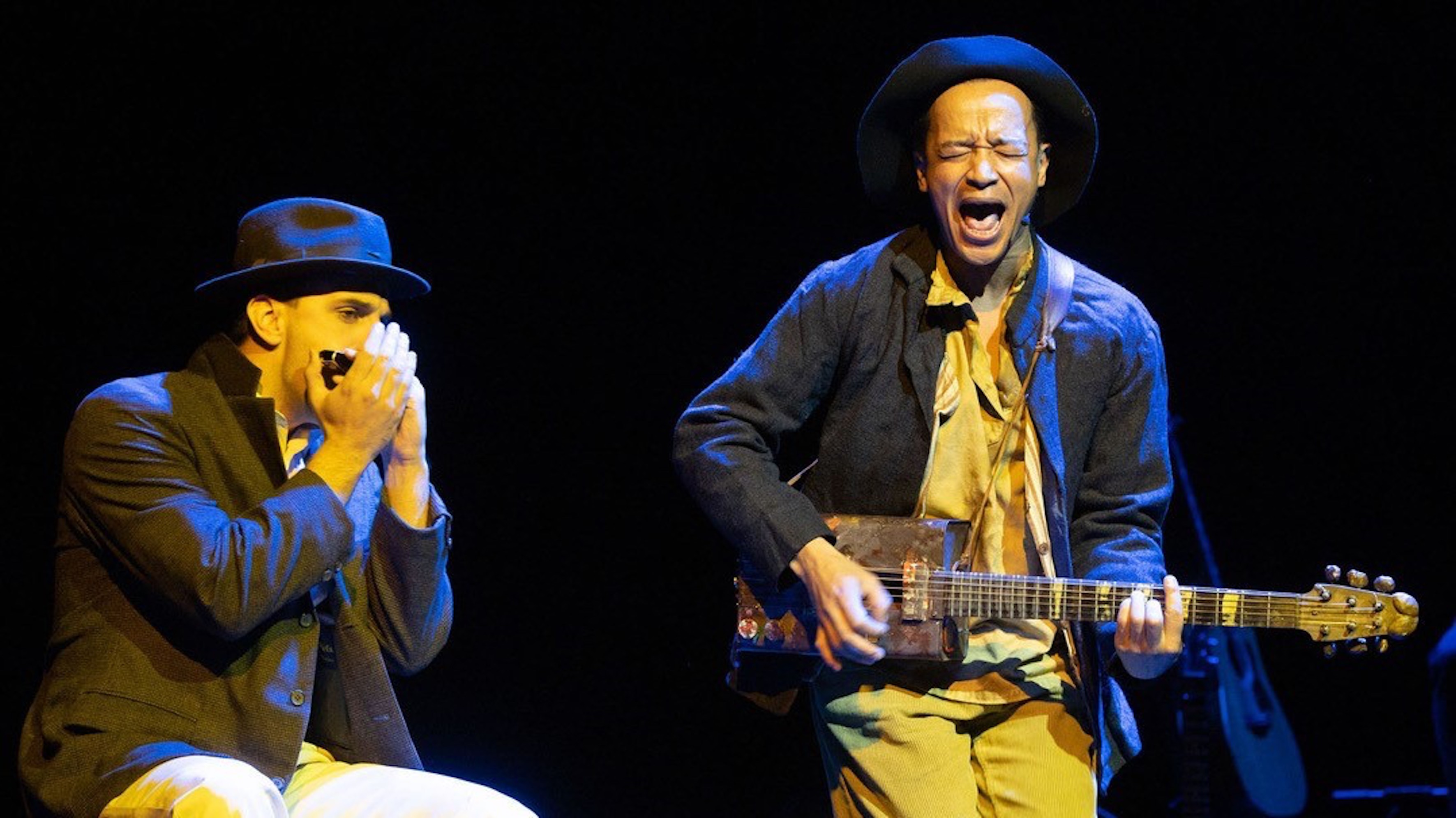
André Terblanche as Josef Marais and Dean Balie as Koos Heuningbek in ‘Ver in die wêreld Kittie’. (Photo: Hans van der Veen)
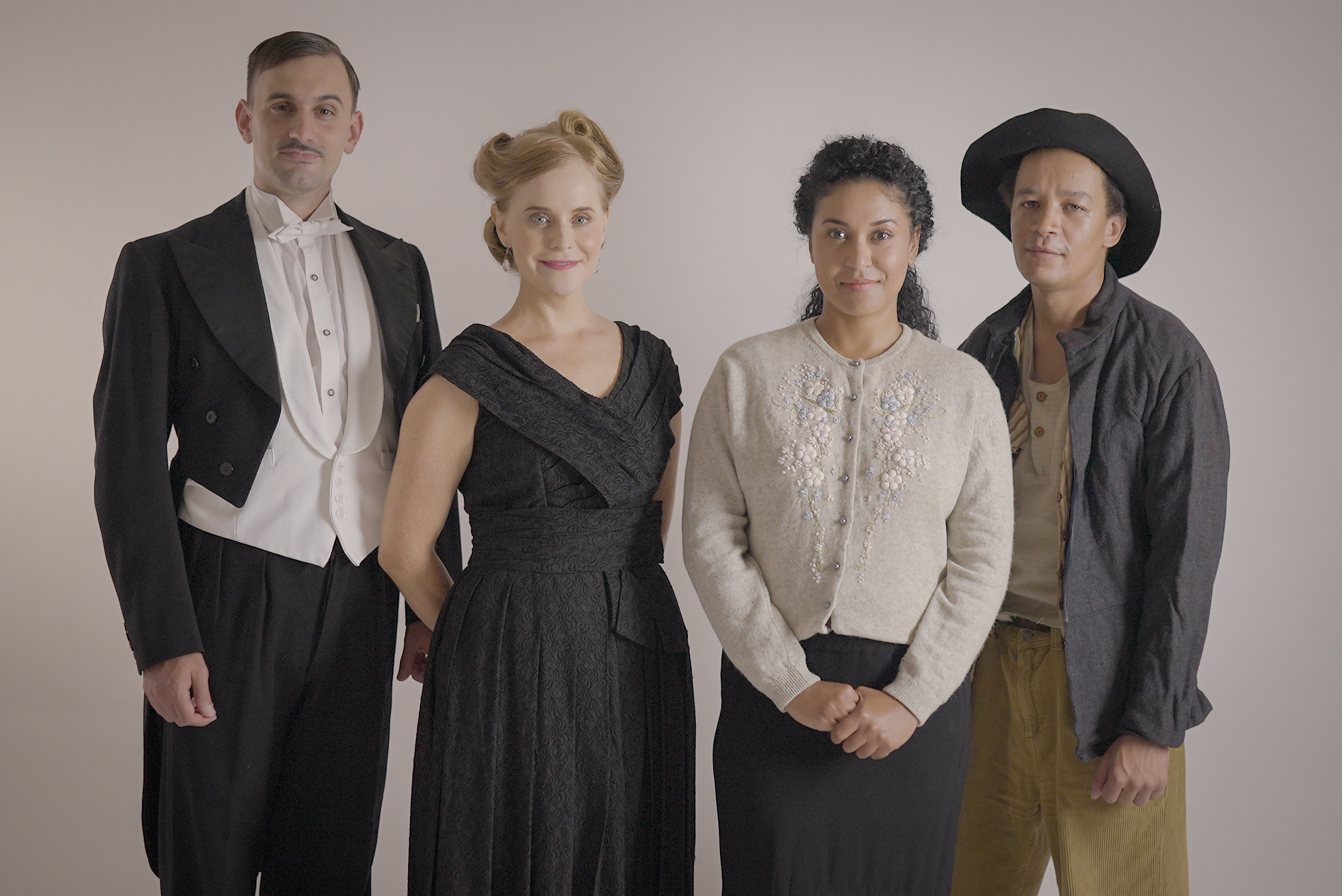
André Terblanche, Jenny Stead, Rushney Ferguson and Dean Balle, the cast of ‘Ver in die wêreld Kittie’. (Photo Kobus Marx / KKNK)
Ver in die wêreld Kittie
For a brief run before The Promise transfers to The Market Theatre on 19 October, Stead is returning to another, quite different role that she created for a very different sort of show, David Kramer’s Ver in die wêreld Kittie. It’s a musical (in English and Afrikaans) that debuted at KKNK (Klein Karoo National Arts Festival) in April; it’s been picking up awards, accolades and standing ovations wherever it’s performed.
It’s based on a legacy of cultural appropriation involving traditional South African folk songs, some of which became huge hits overseas. In it, Stead plays Rosa de Miranda, a Dutch émigré who became one half of a successful husband-and-wife music duo that toured the US, Europe and Israel in the 1940s, 1950s and 1960s when they performed songs essentially stolen by Rosa’s Boland-born husband, Josef Marais. No fat suit this time, Stead instead leans into her character’s Amsterdam accent to great comic effect. And, unlike Astrid, Rosa seems a wide-eyed innocent — sweet, pleasant, happy to be alive. She also sings like an angel.
“She was a real person, a Jewish woman who left Amsterdam during World War 2 after marrying her high-school sweetheart. She took her two children and moved to New York while he stayed behind trying to fight the Nazis. She fell in love with a South African who shared her love for music, they started performing together and were married.”
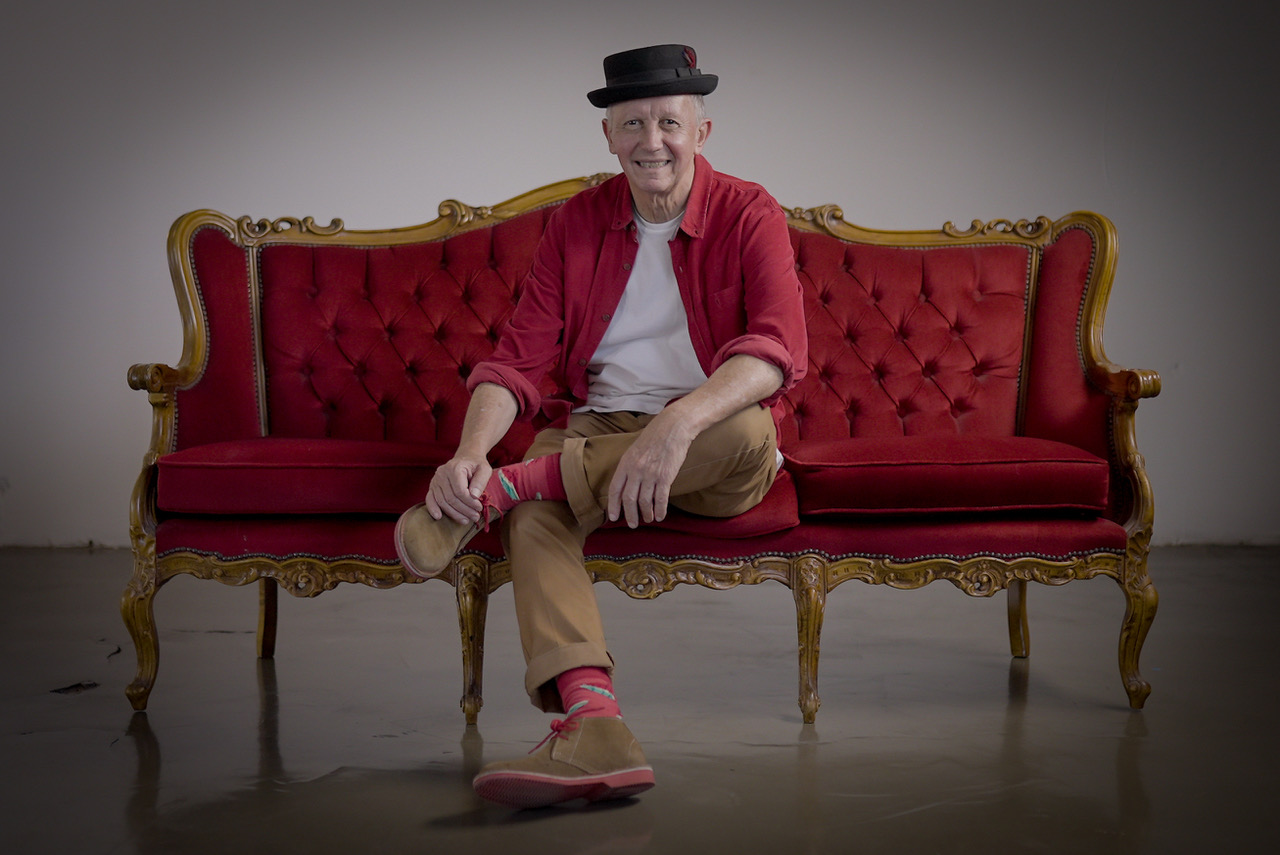
David Kramer, who wrote ‘Ver in die wêreld Kittie’. (Photo: Kobus Marx)
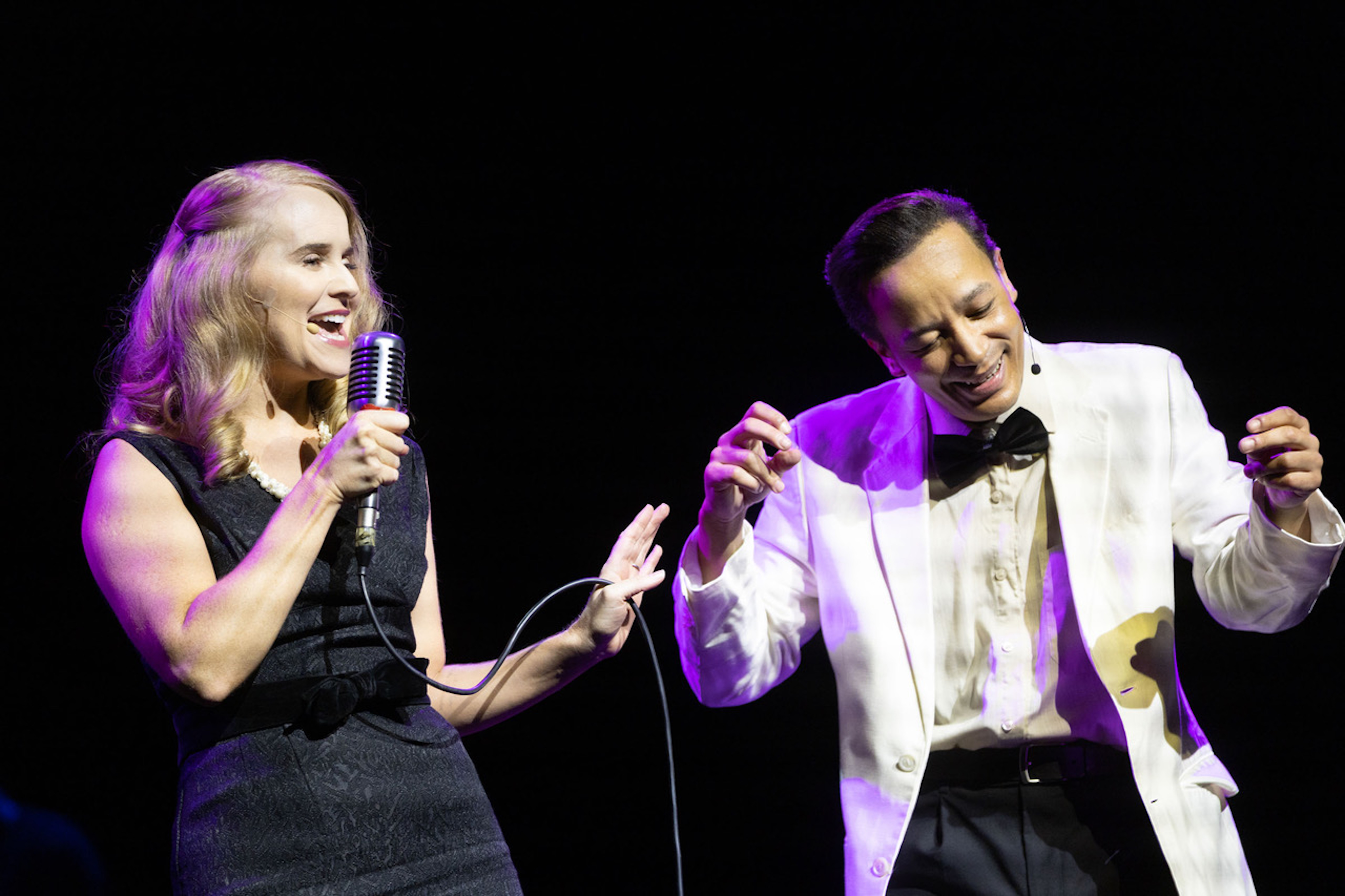
Jenny Stead as Rosa de Miranda and Dean Balie as Johnny Ray in ‘Ver in die wêreld Kittie’. (Photo: Hans van der Veen)
Working with Kramer has been “a bucket list achievement” for Stead. “I’m a massive fan, but I’ve done very few musicals. I love to sing, but I’m not trained, so I get nervous being on stage with professional singers and dancers. One of the greatest things was having David walk up to me and say, ‘I’ve written a song for you to sing in the show’.”
What audiences probably don’t realise is how challenging musicals are to create, perhaps because it’s so easy to be swept up and carried away by the big emotions and toe-tapping fun of the music and singing and dancing. They can come over as frothy and light. Audiences are often looking to be entertained by a musical, whereas so-called straight plays are where more intellectual demands might be made on viewers.
“When you say ‘musical’ it somehow conjures up the image of something frivolous in a lot of people’s minds,” Kramer says. “I’m not sure why that should be, since there have been plenty of musicals exploring quite serious topics.”
Consider Les Misérables and Rent, and work your way through much of Kramer’s own musical theatre oeuvre, and you start to see a pattern of deeper issues being examined, albeit in an entertaining format that you might indeed tap your toes to.
Kramer has probably written more musicals than anyone else in South Africa and has been involved in musical theatre since the 1980s.
“There haven’t been many musicals, though, and it’s because they’re challenging to put together,” he says. “When Taliep Petersen and I created District Six, it was the first time since King Kong that there’d really been a conventional South African musical, one that tries to tell a story in the mould of the American model, with dialogue and songs and dancing and one scene following the next with scene changes and all the rest.”
Kramer says his interest is in probing history, investigating and discovering stories hidden in the past. “Hopefully within my songs, I’m raising questions. I like the idea of putting fairly philosophical ideas into the mouths of characters who wouldn’t normally intellectualise or express certain ideas.”
He says his shows are a result of personal curiosity, a need to dig and find out more. “It’s part of a process of trying to understand. The songs I write are answers to the questions I ask myself.”

André Terblanche as Josef Marais and Jenny Stead in ‘Ver in die wêreld Kittie’. (Photo: G Loubser)
Ver in die wêreld Kittie follows a man who, thanks to a musical ear and a privileged background, is able to study violin in Europe before permanently quitting the Boland and moving to New York. In the US, he achieves fame as a travelling folksinger, also writing and adapting hit songs, soundtracks and musical scores.
Meanwhile, what goes completely unacknowledged is that it had been in South Africa that Marais had listened to, and absorbed, the music of a poor farmworker. In the musical, he’s kind of a minstrel, a character frequently at the heart of Kramer’s stories. He’s called Koos Heuningbek (beautifully portrayed by Dean Balie), and it’s the folk songs and traditional ballads he sings that Marais ends up passing off as his own.
“It’s cultural appropriation and such a hot topic at the moment,” says Stead. “Marais, who few South Africans know about, achieved huge fame in the United States. Much of that success was on the back of folk songs he took and translated into English and tweaked a little bit. Some became huge hits for really big stars in America.”
One of those big-name hits was Sugar Bush, which Doris Day and Frankie Laine sent up the charts in 1952. Its precursor, appropriated by Marais, was Suikerbossie.
It’s an all-too-familiar story in which the rich get fatter off the backs of the poor and downtrodden.
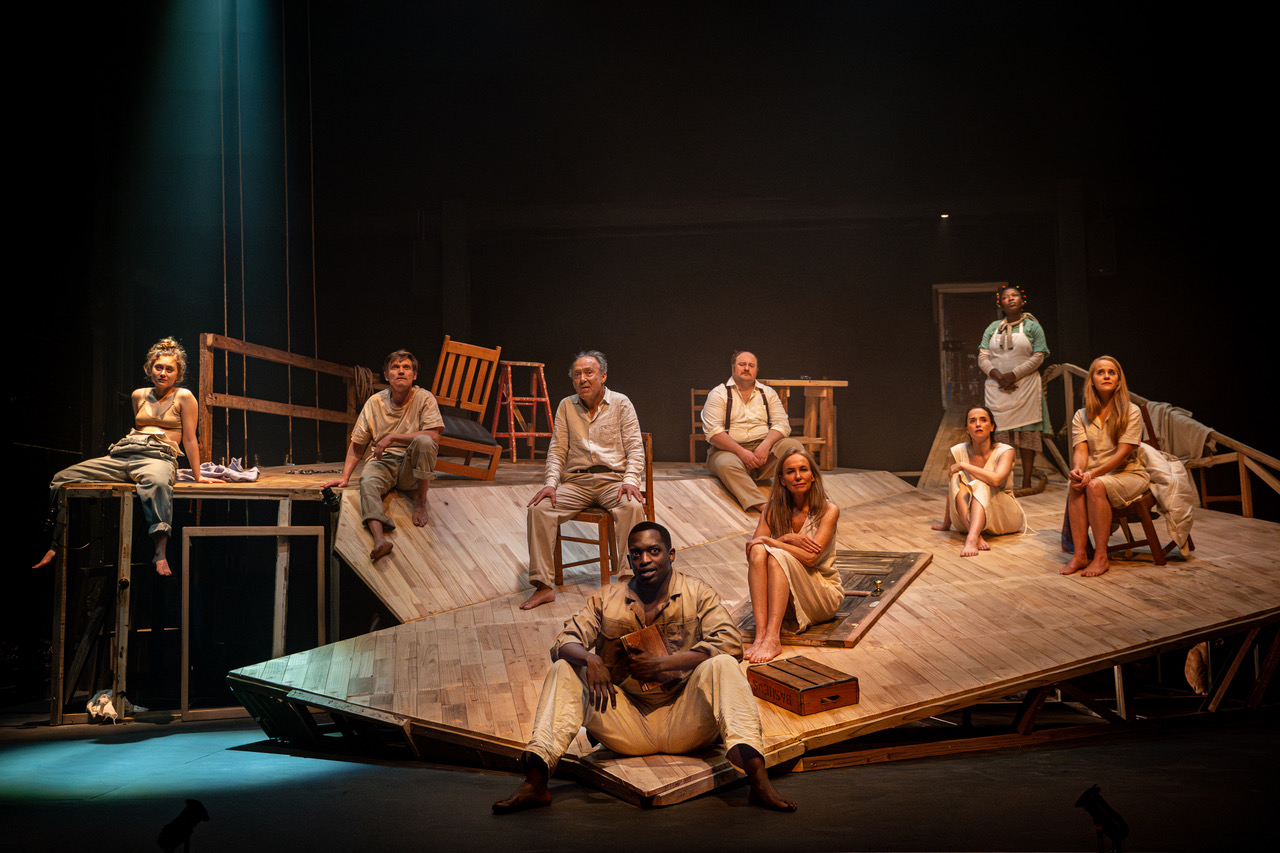
The cast of ‘The Promise’. (Photo: Claude Barnardo)
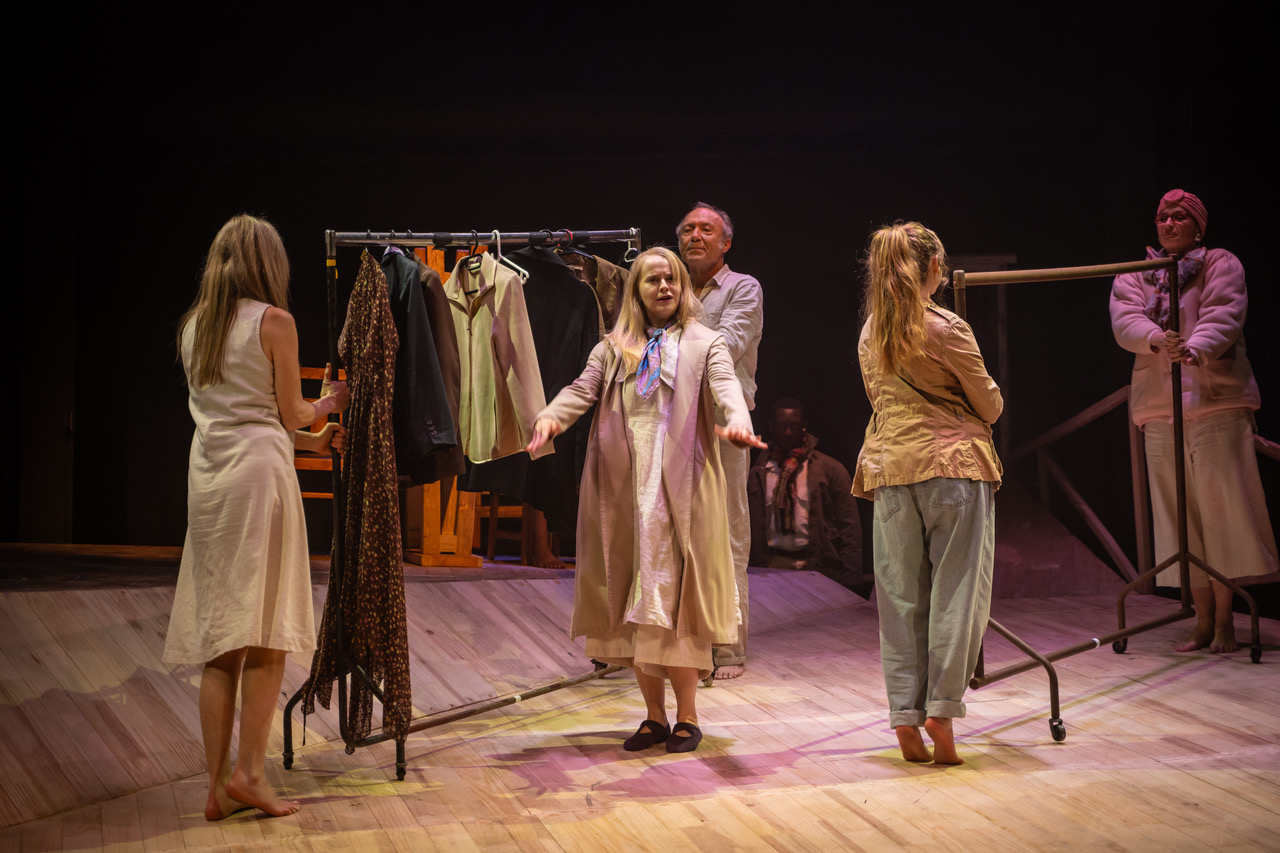
The cast of ‘The Promise’. (Photo: Claude Barnardo)
‘Songs from the South African veld’
Marais was sufficiently fattened up, in fact, that his obituary, heralding his many successes, appeared in The New York Times in 1978.
Of his South African roots, little is said other than that he was born in SA, in Sir Lowry’s Pass, and that, after arriving in New York in 1939, “he developed a reputation as a singer of songs from the South African veld”.
And while the obituary lists plenty of his accomplishments, it says nothing of his appropriation of traditional folk music. Instead, what’s mentioned is that Marais had written a children’s book, Koos, the Hottentot: Tales of the Veld, which was published by Knopf in 1945. There is no suggestion of who Koos was, nor that he had been a real person and was the inspiration for so much of Marais’ success.
That’s where the David Kramer magic touch comes in. He uses the musical as an opportunity to shine a light on Koos Heuningbek, casting him as the true hero of the story. It’s not for nothing that his surname means “honey mouth”; his singing is beautiful in the most authentic and honest way.
It’s not mere sugarcoating, either. As with The Promise, real concerns are raised by this musical, not only about appropriation, but about reparations. Whether it’s land that’s been taken, or songs that are stolen, the question remains: when do we start to make amends?
Perhaps it starts with an honest conversation. Perhaps with a musical or a play, stories that change how we see the world. DM
David Kramer’s Ver in die wêreld Kittie plays at Woordfees in Stellenbosch on 9, 10, 12 and 13 October. Also on the festival programme is a talk by Kramer on 9 October in which he’ll be discussing the story behind the musical. Tickets via Quicket.
Throughout Woordfees (7 to 15 October), there is also an exhibition of photographs of the Karoo and Northern Cape musicians who, two decades ago, inspired Kramer’s show, Karoo Kitaar Blues. It’s free.
The Promise plays at The Market Theatre from 19 October through 5 November. Tickets via WebTickets.





Yes but *GRAMMAR*, people. When did “degrees of comparison” lose its steps? First it was apostrophes, now this?
Big, bigger, biggest. Small (one thing), smaller (two things), smallest (three or more). You can’t have an “oldest” or “best” if you have only one other thing to compare with. So Astrid cannot be “the oldest of two sisters”. She would be the _older_ of two.
Thanks for your time. And you’re welcome.
Great !!
Back in England as a 60s teen interested in folk music and hanging out at our local folk club I picked up a small book. It was the Marais and Miranda song book with 2 very uncool looking people on the cover. I painfully read the music to Ou tannie Koba and Sarie Marais etc happily unaware of cultural appropriation whether my own or Marais and Miranda’s Back then I thought we were all enjoying the wealth of the world’s folk music and sharing it with each other. It’s sad when exploitation is the name of the game. Leaves a sour taste.